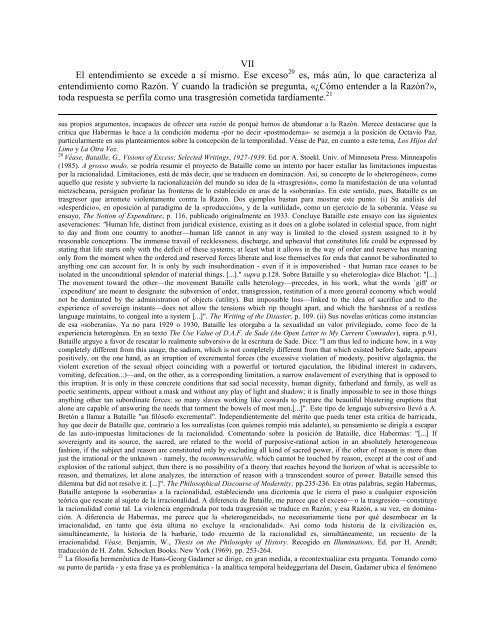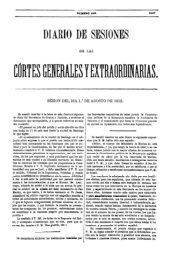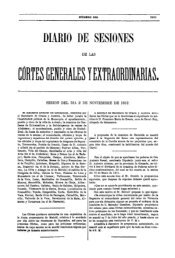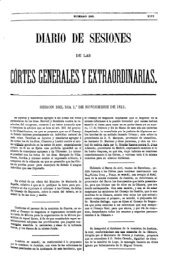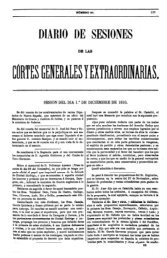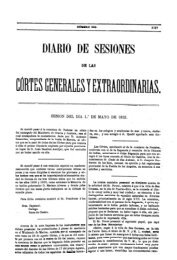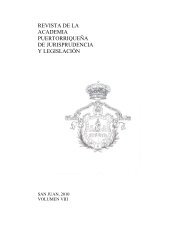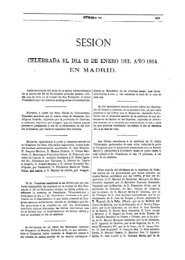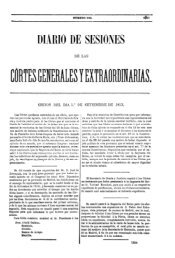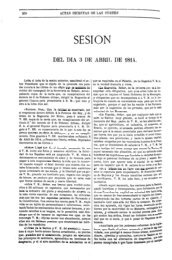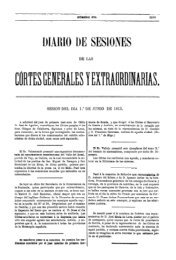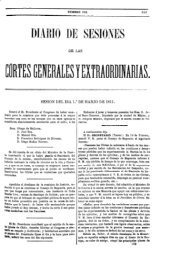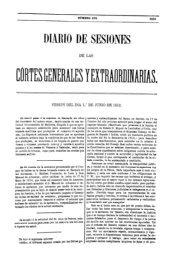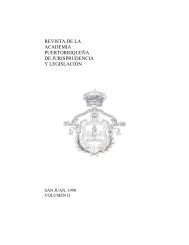VICuando Hegel, en su Phänomenologie <strong>de</strong>s Geistes, traza la inexorable marcha <strong>de</strong> la Razónhacia sí misma, la «Ley <strong>de</strong> la Fuerza» marca el momento en que esa Razón, como percepción,toma conocimiento <strong>de</strong>l mundo como entendimiento 16 . Así, el mundo ya no se percibe como uninerte conglomerado <strong>de</strong> objetos, diferenciados y aislados entre sí, sino como concepto. La «Ley<strong>de</strong> la Fuerza», o el juego <strong>de</strong> la fuerza como exteriorización, y la fuerza repelida <strong>de</strong> nuevo hacia sí(o fuerza propiamente dicha), hacen posible el mundo como mundo, la Razón como RazónAbsoluta 17 . Y, aun cuando Hegel se refiere a la «Ley <strong>de</strong> la Fuerza» en su acepción natural, <strong>de</strong>ntro<strong>de</strong> la dialéctica hegeliana -y, por tanto, <strong>de</strong>s<strong>de</strong> la Razón Absoluta- tal ley inaugura el vuelo <strong>de</strong>lbúho <strong>de</strong> Minerva 18 . No hay Razón sin Fuerza 19 .16 Véase, Hegel, G. W. F., Fenomenología <strong>de</strong>l Espíritu (1807). Traducción <strong>de</strong> W. Roces, Fondo <strong>de</strong> Cultura Económica. México(1966). pp. 82-104.17 Hablando <strong>de</strong> la relación entre la ley y la fuerza dice Hegel: "La ley se presenta, pues, <strong>de</strong> dos modos, <strong>de</strong> una parte, como ley enla que las diferencias se expresan como momentos in<strong>de</strong>pendientes; <strong>de</strong> otra parte, en la forma <strong>de</strong>l simple ser retornado a sí mismo,que, a su vez, pue<strong>de</strong> llamarse fuerza, pero, <strong>de</strong> tal modo, que no se entien<strong>de</strong> por tal fuerza repelida hacia sí misma, sino la fuerzaen general o el concepto <strong>de</strong> la fuerza, es <strong>de</strong>cir, una abstracción que atrae hacia sí las diferencias entre lo que es atraído y lo queatrae[...]". supra. p. 94. Debe <strong>de</strong>stacarse que cuando Hegel se refiere a la relación entre la ley y la fuerza en este texto lo hace<strong>de</strong>ntro <strong>de</strong> un contexto «natural». No obstante, y en tanto que Hegel preten<strong>de</strong> sentar los cimientos <strong>de</strong>l Espíritu, en reconciliar loindividual con lo universal, po<strong>de</strong>mos hilvanar su fenomenología con su rechtsphilosophie. A saber, el Estado, como máximarepresentación política-jurídica <strong>de</strong>l Espíritu, presupone la fenomenología (por no <strong>de</strong>cir la «Lógica»). Así, en la introducción a suNaturrecht und Staatswissenchaft im Grundisse (Filosofía <strong>de</strong>l Derecho) (1821), Hegel inicia sus especulaciones sobre la «cienciafilosófica <strong>de</strong>l Derecho» planteando que la aproximación hacia ella "<strong>de</strong>be <strong>de</strong>senvolver <strong>de</strong>s<strong>de</strong> el concepto", §2. Claro, todaaproximación <strong>de</strong>s<strong>de</strong> el concepto presupone estar en el concepto. La ley dictada por el Estado, aun cuando no es equivalente a laley natural sensus strictus, se ampara en la Fuerza que legítimamente lo constituye. Véase §§257-360. Vale <strong>de</strong>stacar los apuntes<strong>de</strong> Carla Cordua sobre la relación entre el Derecho y la coacción en la filosofía <strong>de</strong>l <strong>de</strong>recho <strong>de</strong> Hegel. Derecho y Coacción, 59REVISTA JURÍDICA U.P.R. 157 (1990). Destaca que, para Hegel- y partiendo <strong>de</strong>l ya constituido Estado, "[s]ólo en el concepto <strong>de</strong>violencia o fuerza encontramos un verda<strong>de</strong>ro contrario <strong>de</strong>l <strong>de</strong>recho, [<strong>de</strong> acuerdo con la teoría <strong>de</strong> la justicia <strong>de</strong> Hegel;] `Laviolencia y la coacción son, consi<strong>de</strong>radas en abstracto, contrarias al <strong>de</strong>recho'". p. 160. El conflicto entre el <strong>de</strong>recho y la violencia(o fuerza) se plantea, pues, como un problema <strong>de</strong> legitimación. Es <strong>de</strong>cir, ¿cómo pue<strong>de</strong> el Estado -y, por tanto, el Derechojustificarsu uso <strong>de</strong> fuerza sin negar la libertad sobre la cual supuestamente está fundada? La respuesta <strong>de</strong> Hegel a este problemase dirige a absolver (o mejor, sublimar) al Estado <strong>de</strong> toda responsabilidad frente al individuo. Así, cuando Hegel se refiere alEstado en su tercera sección, nos dirá que: "El Estado, como realidad <strong>de</strong> la voluntad sustancial que posee en la conciencia <strong>de</strong> sí[sic] individualidad elevada a su universalidad, es lo racional en sí y por sí. Esta unidad sustancial, como fin absoluto y móvil <strong>de</strong>sí misma, es don<strong>de</strong> la libertad alcanza la plenitud <strong>de</strong> sus <strong>de</strong>rechos, así como este fin último tiene el más alto <strong>de</strong>recho frente a losindividuos, cuyo <strong>de</strong>ber supremo es el <strong>de</strong> ser miembros <strong>de</strong>l Estado". § 258. O sea, para Hegel, la absoluta i<strong>de</strong>ntidad entre el Estadoy la Libertad legitiman su uso <strong>de</strong> fuerza, aun cuando esa fuerza es la condición para su constitución. En otras palabras, la"realidad <strong>de</strong> la voluntad sustancial" <strong>de</strong>l Estado nace <strong>de</strong> la conciencia en-sí y por-sí.18Dice Hegel, al concluir su «prefacio» a la Filosofía <strong>de</strong>l Derecho: "Al <strong>de</strong>cir, aún, una palabra acerca <strong>de</strong> la teoría <strong>de</strong> cómo <strong>de</strong>beser el mundo, la filosofía, por lo <strong>de</strong>más, llega siempre <strong>de</strong>masiado tar<strong>de</strong>. Como pensar <strong>de</strong>l mundo, surge por primera vez en eltiempo, <strong>de</strong>spués que la realidad ha cumplido su proceso <strong>de</strong> formación y está realizada. Esto, que el concepto enseña, la historia lopresenta, justamente, necesario; esto es, que primero aparece lo i<strong>de</strong>al frente a lo real en la madurez <strong>de</strong> la realidad, y <strong>de</strong>spués élcrea este mismo mundo, gestando en su sustancia, en forma <strong>de</strong> reino intelectual. Cuando la filosofía pinta el claroscuro, ya unaspecto <strong>de</strong> la vida ha envejecido y, en la penumbra, no se le pue<strong>de</strong> rejuvenecer, sino sólo reconocer: el búho <strong>de</strong> Minerva inicia suvuelo al caer el crepúsculo".19La tesis central <strong>de</strong> Habermas en The Philosophical Discourse of Mo<strong>de</strong>rnity es que la «racionalidad», tal y como ha sidoconcebida, encuentra su homólogo en la «mo<strong>de</strong>rnidad». La correlación entre estos conceptos marca el tránsito <strong>de</strong>l pensamientoocci<strong>de</strong>ntal <strong>de</strong>s<strong>de</strong> Hegel. En Hegel, la valoración <strong>de</strong>l «sujeto» como agente par excellence <strong>de</strong> la Razón arrastra -según Haberlaslassiguientes connotaciones: (i) el individualismo, (ii) la razón crítica, (iii) la autonomía y (iv) el i<strong>de</strong>alismo filosófico. p.17. Sinembargo, el principio <strong>de</strong> la subjetividad es incapaz <strong>de</strong> fundamentarse a sí mismo sin recurrir a un absolutismo filosófico. DiceHabermas: "[...] With this concept of the absolute, Hegel regresses back behind the intuitions of his youthful period. Heconceives the overcoming of subjectivity within the boundaries of a philosophy of the subject. In the end, this gives rise to adilemma: Hegel has ultimately to <strong>de</strong>ny to the self-un<strong>de</strong>rstanding of mo<strong>de</strong>rnity the possibility of a critique of mo<strong>de</strong>rnity. Thecritique of a subjectivity puffed up into an absolute power ironically turns into a reproach of the philosopher against the limitationof subjects who have not yet un<strong>de</strong>rstood either him or the course of history." p. 22. Los «discursos <strong>de</strong> la mo<strong>de</strong>rnidad» (entiéndasela «dialéctica negativa» <strong>de</strong> Adorno, la «genealogía» <strong>de</strong> Foucault y la «<strong>de</strong>construcción» <strong>de</strong> Derrida) son, para Habermas,reformulaciones <strong>de</strong> este dilema, toda vez que permanecen atrapados por la categoría <strong>de</strong> la subjetividad. Son, por los méritos <strong>de</strong>
VIIEl entendimiento se exce<strong>de</strong> a sí mismo. Ese exceso 20 es, más aún, lo que caracteriza alentendimiento como Razón. Y cuando la tradición se pregunta, «¿Cómo enten<strong>de</strong>r a la Razón?»,toda respuesta se perfila como una trasgresión cometida tardíamente. 21sus propios argumentos, incapaces <strong>de</strong> ofrecer una razón <strong>de</strong> porqué hemos <strong>de</strong> abandonar a la Razón. Merece <strong>de</strong>stacarse que lacrítica que Habermas le hace a la condición mo<strong>de</strong>rna -por no <strong>de</strong>cir «postmo<strong>de</strong>rna»- se asemeja a la posición <strong>de</strong> Octavio Paz,particularmente en sus planteamientos sobre la concepción <strong>de</strong> la temporalidad. Véase <strong>de</strong> Paz, en cuanto a este tema, Los Hijos <strong>de</strong>lLimo y La Otra Voz.20Véase, Bataille, G., Visions of Excess; Selected Writings, 1927-1939. Ed. por A. Stoekl. Univ. of Minnesota Press. Minneapolis(1985). A grosso modo, se podría resumir el proyecto <strong>de</strong> Bataille como un intento por hacer estallar las limitaciones impuestaspor la racionalidad. Limitaciones, está <strong>de</strong> más <strong>de</strong>cir, que se traducen en dominación. Así, su concepto <strong>de</strong> lo «heterogéneo», comoaquello que resiste y subvierte la racionalización <strong>de</strong>l mundo su i<strong>de</strong>a <strong>de</strong> la «trasgresión», como la manifestación <strong>de</strong> una voluntadnietzscheana, persiguen profanar las fronteras <strong>de</strong> lo establecido en aras <strong>de</strong> la «soberanía». En este sentido, pues, Bataille es untrasgresor que arremete violentamente contra la Razón. Dos ejemplos bastan para mostrar este punto: (i) Su análisis <strong>de</strong>l«<strong>de</strong>sperdicio», en oposición al paradigma <strong>de</strong> la «producción», y <strong>de</strong> la «utilidad», como un ejercicio <strong>de</strong> la soberanía. Véase suensayo, The Notion of Expenditure, p. 116, publicado originalmente en 1933. Concluye Bataille este ensayo con las siguientesaseveraciones: "Human life, distinct from juridical existence, existing as it does on a globe isolated in celestial space, from nightto day and from one country to another—human life cannot in any way is limited to the closed system assigned to it byreasonable conceptions. The immense travail of recklessness, discharge, and upheaval that constitutes life could be expressed bystating that life starts only with the <strong>de</strong>ficit of these systems; at least what it allows in the way of or<strong>de</strong>r and reserve has meaningonly from the moment when the or<strong>de</strong>red and reserved forces liberate and lose themselves for ends that cannot be subordinated toanything one can account for. It is only by such insubordination - even if it is impoverished - that human race ceases to beisolated in the unconditional splendor of material things. [...]." supra p.128. Sobre Bataille y su «heterología» dice Blachot: "[...]The movement toward the other—the movement Bataille calls heterology—prece<strong>de</strong>s, in his work, what the words `gift' or`expenditure' are meant to <strong>de</strong>signate: the subversion of or<strong>de</strong>r, transgression, restitution of a more general economy which wouldnot be dominated by the administration of objects (utility). But impossible loss—linked to the i<strong>de</strong>a of sacrifice and to theexperience of sovereign instants—does not allow the tensions which rip thought apart, and which the harshness of a restlesslanguage maintains, to congeal into a system [...]". The Writing of the Disaster, p. 109. (ii) Sus novelas eróticas como instancias<strong>de</strong> esa «soberanía». Ya no para 1929 o 1930, Bataille les otorgaba a la sexualidad un valor privilegiado, como foco <strong>de</strong> laexperiencia heterogénea. En su texto The Use Value of D.A.F. <strong>de</strong> Sa<strong>de</strong> (An Open Letter to My Current Comra<strong>de</strong>s), supra. p.91,Bataille arguye a favor <strong>de</strong> rescatar lo realmente subversivo <strong>de</strong> la escritura <strong>de</strong> Sa<strong>de</strong>. Dice: "I am thus led to indicate how, in a waycompletely different from this usage, the sadism, which is not completely different from that which existed before Sa<strong>de</strong>, appearspositively, on the one hand, as an irruption of excremental forces (the excessive violation of mo<strong>de</strong>sty, positive algolagnia, theviolent excretion of the sexual object coinciding with a powerful or tortured ejaculation, the libidinal interest in cadavers,vomiting, <strong>de</strong>fecation...)—and, on the other, as a corresponding limitation, a narrow enslavement of everything that is opposed tothis irruption. It is only in these concrete conditions that sad social necessity, human dignity, fatherland and family, as well aspoetic sentiments, appear without a mask and without any play of light and shadow; it is finally impossible to see in those thingsanything other tan subordinate forces: so many slaves working like cowards to prepare the beautiful blustering eruptions thatalone are capable of answering the needs that torment the bowels of most men.[...]". Este tipo <strong>de</strong> lenguaje subversivo llevó a A.Bretón a llamar a Bataille "un filósofo excremental". In<strong>de</strong>pendientemente <strong>de</strong>l mérito que pueda tener esta crítica <strong>de</strong> barricada,hay que <strong>de</strong>cir <strong>de</strong> Bataille que, contrario a los surrealistas (con quienes rompió más a<strong>de</strong>lante), su pensamiento se dirigía a escapar<strong>de</strong> las auto-impuestas limitaciones <strong>de</strong> la racionalidad. Comentando sobre la posición <strong>de</strong> Bataille, dice Habermas: "[...] Ifsovereignty and its source, the sacred, are related to the world of purposive-rational action in an absolutely heterogeneousfashion, if the subject and reason are constituted only by excluding all kind of sacred power, if the other of reason is more thanjust the irrational or the unknown - namely, the incommensurable, which cannot be touched by reason, except at the cost of an<strong>de</strong>xplosion of the rational subject, then there is no possibility of a theory that reaches beyond the horizon of what is accessible toreason, and thematizes, let alone analyzes, the interaction of reason with a transcen<strong>de</strong>nt source of power. Bataille sensed thisdilemma but did not resolve it. [...]". The Philosophical Discourse of Mo<strong>de</strong>rnity; pp.235-236. En otras palabras, según Habermas,Bataille antepone la «soberanía» a la racionalidad, estableciendo una dicotomía que le cierra el paso a cualquier exposiciónteórica que rescate al sujeto <strong>de</strong> la irracionalidad. A diferencia <strong>de</strong> Bataille, me parece que el exceso—o la trasgresión—constituyela racionalidad como tal. La violencia engendrada por toda trasgresión se traduce en Razón; y esa Razón, a su vez, en dominación.A diferencia <strong>de</strong> Habermas, me parece que la «heterogeneidad», no necesariamente tiene por qué <strong>de</strong>sembocar en lairracionalidad, en tanto que ésta última no excluye la «racionalidad». Así como toda historia <strong>de</strong> la civilización es,simultáneamente, la historia <strong>de</strong> la barbarie, todo recuento <strong>de</strong> la racionalidad es, simultáneamente, un recuento <strong>de</strong> lairracionalidad. Véase, Benjamin, W., Thesis on the Philosophy of History. Recogido en Illuminations, Ed. por H. Arendt;traducción <strong>de</strong> H. Zohn. Schocken Books. New York (1969). pp. 253-264.21 La filosofía hermenéutica <strong>de</strong> Hans-Georg Gadamer se dirige, en gran medida, a recontextualizar esta pregunta. Tomando comosu punto <strong>de</strong> partida - y esta frase ya es problemática - la analítica temporal hei<strong>de</strong>ggeriana <strong>de</strong>l Dasein, Gadamer ubica el fenómeno
- Page 1 and 2:
REVISTA DE LA ACADEMIA PUERTORRIQUE
- Page 3:
2enardecerá, en vez de corregir, l
- Page 9 and 10:
través de la Ley, enardecerá, en
- Page 11 and 12:
MEDICINE AND BIOLOGY: HOW FAR CAN T
- Page 13:
unfair, in view of the total absenc
- Page 16 and 17:
CONTESTACIÓN AL DISCURSO DEL HON.
- Page 18 and 19:
la Oficina de Política sobre Cienc
- Page 20 and 21:
códigos de ética existentes y los
- Page 22 and 23:
REFORMING THE FEDERAL SENTENCING GU
- Page 24 and 25:
narcotics and firearms, they tend t
- Page 26 and 27:
Our faith in technology and plannin
- Page 28 and 29:
single, all-powerful judge”. 17 W
- Page 30 and 31:
CONTESTACIÓN AL DISCURSO DEL HON.
- Page 32 and 33:
3trafficking and gun-related offens
- Page 34 and 35:
5conduct which experience has shown
- Page 36 and 37:
2En este escrito trataré de establ
- Page 38 and 39:
4atender sus obligaciones económic
- Page 40 and 41:
6B. Juicio Público: Al igual que e
- Page 42 and 43:
8explicar la doctrina vigente. 47 A
- Page 44 and 45:
10tan serio disturbio emocional (
- Page 46 and 47:
12En Soto Ramos v. Superintendente
- Page 48 and 49:
14profesional y cómo ésta podría
- Page 50 and 51:
16Las implicaciones de esta exigenc
- Page 52 and 53:
18jurado. 116 Por otro lado, nuestr
- Page 54 and 55:
20forma rigurosa, de que la renunci
- Page 56 and 57:
22Tribunal Supremo ha seguido celos
- Page 58 and 59:
24protección es mayor que la que e
- Page 60 and 61:
264. Absuelto un acusado por determ
- Page 62 and 63:
28En Puerto Rico sólo cabe regular
- Page 64 and 65:
30B. Aplicación ex post facto de l
- Page 66 and 67:
32relación con el alcance 224 de l
- Page 68 and 69:
34se trata de una norma que comenz
- Page 70 and 71:
364) que la corroboración se relac
- Page 72 and 73:
38arresto. Bajo la Enmienda Cuarta,
- Page 74 and 75:
40razonable a la intimidad, no hay
- Page 76 and 77: 42Nuestra legislación permite la d
- Page 78 and 79: 44Derechos se dispone expresamente
- Page 80 and 81: 46Estados Unidos, adopta una posici
- Page 82 and 83: 2Aclarados esos puntos, coincido co
- Page 84 and 85: La verdad es que los principios con
- Page 86 and 87: EL DOLOR Y LA ANGUSTIA MENTALRamón
- Page 88 and 89: 3.7 8 9 10conocida y aceptada, hast
- Page 90 and 91: 5estímulo. Sin embargo, el punto e
- Page 92 and 93: 7de reconocimiento mundial, como ex
- Page 94 and 95: dice que éste no distingue entre e
- Page 96 and 97: 11dos meses y medio más tarde cuan
- Page 98 and 99: implicaciones negativas. Se debe de
- Page 100 and 101: 2naturaleza de los seres vivos, apl
- Page 102 and 103: 4de la clase dominante en la socied
- Page 104 and 105: 6su hora admitió ser identificado
- Page 106 and 107: 8cumpla la prestación que la norma
- Page 108 and 109: 10Encontramos la expresión todaví
- Page 110 and 111: 12La satisfacción de necesidades h
- Page 112 and 113: 14como aquí se propone, puede hace
- Page 114 and 115: LOS DERECHOS HUMANOS FRENTE AL ESTA
- Page 116 and 117: Como resultado, se ha llegado a un
- Page 118 and 119: Yugoslavia, Georgia, Azerbaiján, A
- Page 120 and 121: METASTESIS DE LA «RAZÓN» Y EL «
- Page 122 and 123: fue quizás el producto de esa mism
- Page 124 and 125: embargo, la corroboración de la ne
- Page 128 and 129: del entendimiento (Verstehen) en el
- Page 130 and 131: por el poder, por las estructuras y
- Page 132 and 133: lo único que indica esta trasgresi
- Page 134 and 135: Legislativa enmendó la Ley 53 orig
- Page 136 and 137: Incluso, únicamente ofreció su t
- Page 138 and 139: Al llegar a la gobernación en 1965
- Page 140 and 141: Presidente del Tribunal Supremo y a
- Page 142 and 143: Lamentablemente, vivimos en una soc
- Page 144 and 145: 1. El que en todas las acciones rel
- Page 146 and 147: coordinación interagencial, con pa


